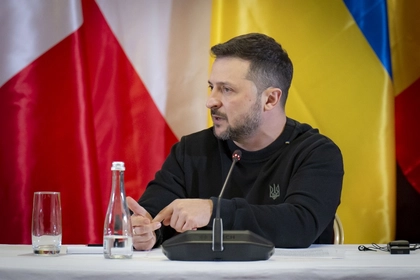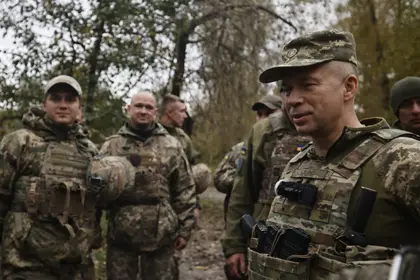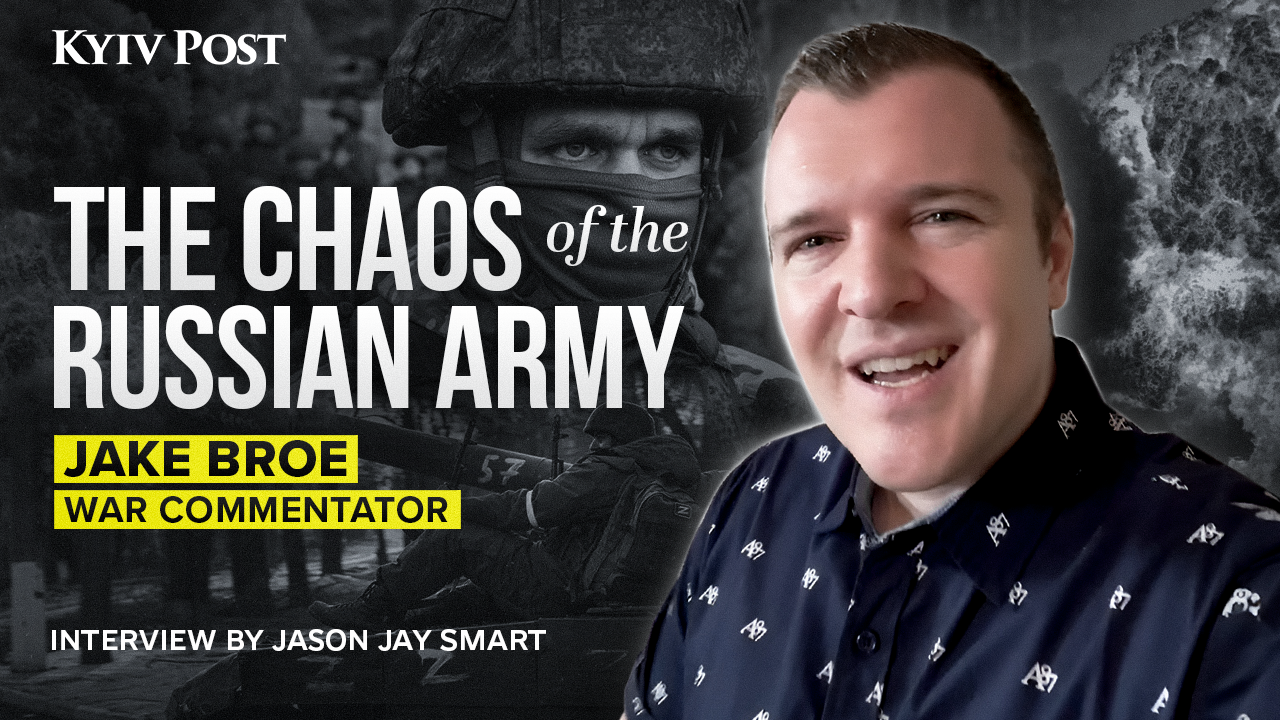Overview:
- Questions swirl about the new commander-in-chief, a lesser-known “Hero of Ukraine”
- Republican senators in the US decouple contentious border bill from Ukraine funds
- Medvedev continues with his doomsday rants, warning of “the end to everything”
- Zelensky announces third group of Ukrainian soldiers returned from Russian captivity
Ukrainians laud outgoing military commander, wonder what his replacement will bring
JOIN US ON TELEGRAM
Follow our coverage of the war on the @Kyivpost_official.
After weeks of rumors that the Ukrainian Armed Forces (AFU) very popular commander-in-chief was asked to resign, President Volodymyr Zelensky clarified on Thursday that he and Valery Zaluzhny were indeed parting ways, adding that he hoped the general would remain in some capacity in the war against the Russian invasion.
Following the announcement that Zaluzhny was being replaced by decorated general Oleksandr Syrsky, who led the defense of Kyiv, the outpouring began for the former commander who was by all accounts beloved by his troops and indeed had a higher public approval rating in polls than the war-time president himself.
Thanks General Zaluzhny! pic.twitter.com/AmAtjfYyxX
— Kateryna Shymkevych🇺🇦 (@ks74119) February 8, 2024
Despite Syrsky’s successes in defending the capital and the Kharkiv region, and being decorated with the Hero of Ukraine award, the country’s highest honor, the 58-year-old general does not have nearly the star power of his predecessor: according to a December poll, AFP reported, 48 percent of Ukrainians had never heard of Syrsky before.
Some online voices went so far as to question the selection of a new commander-in-chief who was born in Russia.
Like many other senior AFU officers, Syrsky was born in Russia and studied at a Soviet military academy in Moscow. Later deployed to Ukraine, he remained there, studied at the National Defense University in Kyiv, and then joined the newly independent Ukrainian army.

Zelensky Criticizes G20’s Weak Position on Russian Invasion
Ukrainskaya Pravda described Syrsky as a no-holds-barred type of fighter, with “a reputation as a man who values getting things done more than the number of lives he sacrifices to do so.”
Senate agrees to consider Ukraine aid vote separately from sticky immigration reforms
While any new US aid delivered to Kyiv is still far from certain or likely, the Senate made a big leap forward on Thursday, as enough Republican senators gave their approval to debate and ultimately vote on such a measure, now that it is bereft of any accompanying language on the changes to immigration policy.
Previously, Republicans had insisted on coupling the two issues, but the important signal out of the Senate on Thursday was that Republican leaders there have an appetite for sending $60 billion to Ukraine.
Presumed Republican presidential candidate Donald Trump has instructed conservatives on Capitol Hill to kill any bill on immigration so that it would remain an election issue in November.
Now relieved of any stipulations about the US-Mexico border emergency, the $95 billion package to be debated on the Senate floor will include only funding for Ukraine, Israel and Taiwan.
Democrats hold only a one-vote tie-breaker majority in the Senate, and Republicans hold a slightly larger majority in the lower house. Indications to date have been that new funding for Ukraine has little chance of passing the House of Representatives, with some rabidly pro-Trump members speaking out loudly against any such measure, but they have yet to consider a bill that has stripped out the immigration piece.
NATO’s clear advantage in a war would necessitate a nuclear response, Medvedev reports
Russia’s former president and deputy chair of the federation’s security council, Dmitry Medvedev, dubbed by Kyiv Post as the “Herald of the Apocalypse” continued his nuclear threats this week online, saying that because NATO’s power is vastly superior to Russia’s, Moscow would have no choice but to respond with nuclear attacks.
Medvedev stressed that Russia’s plans do not include a war with NATO, but warned that if a conflict with the West were to start, Russia would have to respond “asymmetrically” in a volley of missiles that would result in, you guessed it, “that very Apocalypse.”
“So, because our military capabilities are thus incomparable, we will simply be left with no choice,” he wrote on Twitter. “The response will be asymmetrical. To defend our country’s territorial integrity, ballistic and cruise missiles carrying special warheads will be put to use. It is based on our military doctrine documents and is well known to all. And this is exactly that very Apocalypse. The end [of] everything.”
The Institute for the Study of War (ISW) surmised that Medvedev’s posturing was intended for domestic audiences, and to promote “Kremlin narratives that NATO and the West generally — pose an existential threat to Russia.”
Sunak, Scholz, Macron, Norwegen, Finnish, Polish, and other NATO bosses are harping on, “We must be ready for war against Russia.”
— Dmitry Medvedev (@MedvedevRussiaE) February 7, 2024
Even though Russia has many times underscored that conflict with NATO and EU member states was not in the plans, the dangerous babbling is still…
Another 100 POWs returned to Ukraine
On Thursday, Zelensky announced the safe return to Ukraine of 100 service personnel from Russian captivity, including soldiers from the AFU, the National Guard and the State Border Guard Service.
“The majority of them are Mariupol defenders,” the president wrote on social media, referring to the city in the Donetsk region famously besieged by the Russians in the Spring of 2022. “All of them are our people, all of them are back in their native land. We are working on bringing back every Ukrainian who is still in captivity, and we will not stop until we do!” the president wrote.
This was the third such return of captive Ukrainian soldiers this year, following 200 soldiers on Jan. 3, and 207 soldiers on Jan. 31.
You can also highlight the text and press Ctrl + Enter









